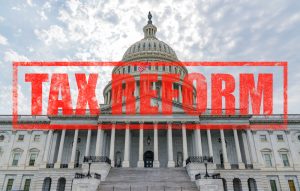President Biden’s proposed budget highlights his tax agenda – part two
 In his proposed budget for fiscal year 2025, President Biden has included several tax provisions. These will impact individuals, families, businesses, and corporate taxpayers. While the Republican Party still controls the U.S. House of Representatives, most of these proposals have little chance of passing. But, depending on how the elections in November go, they may breathe fresh life. Below is a summary of the leading tax provisions found in the budget that will impact individuals.
In his proposed budget for fiscal year 2025, President Biden has included several tax provisions. These will impact individuals, families, businesses, and corporate taxpayers. While the Republican Party still controls the U.S. House of Representatives, most of these proposals have little chance of passing. But, depending on how the elections in November go, they may breathe fresh life. Below is a summary of the leading tax provisions found in the budget that will impact individuals.
Tax provisions for individuals
Biden is against prolonging tax breaks for individuals earning more than $400,000 annually. However, he stands by his pledge not to raise taxes on filers earning less than that amount. Among the following, his proposed budget will impact:
- Tax rates. The plan would restore the highest individual marginal income tax rate to 39.6%, as before the TCJA, for taxpayers earning more than $400,000 ($450,000 for joint filers).
- Net investment income tax (NIIT). Any pass-through business revenue not otherwise subject to the NIIT or self-employment tax would be included in the NIIT on income over $400,000. Additionally, the budget would raise the NIIT rate (on investment income over $400,000) to 5% and the supplementary Medicare tax rate (on profits over $400,000).
- Taxes on capital gains. Capital gains would be subject to ordinary income tax rates rather than the highest capital gains rate of 20% for individuals whose taxable income exceeds $1 million. Moreover, a $5 million exemption would be from unrealized gains upon death ($10 million for married couples).
- Child Tax Credit (CTC). The plan would raise the maximum age to 17 through 2025 and increase the maximum per-child credit to $3,600 for qualifying children under six and $3,000 for all other qualifying children. In addition, it would create a “presumptive eligibility” idea, roll out an advance monthly payment mechanism, and permanently make the CTC entirely refundable.
- Premium tax credits (PTCs). Biden would extend the IRA’s health insurance subsidy program to taxpayers earning more than 400% of the federal poverty level and lower the minimum contribution required to be eligible for premium tax credits (PTCs).
- Estate and gift taxes. The plan would abolish several estate and gift tax breaks that benefit the rich and lower their overall tax burden. For instance, a new annual gift tax exclusion would apply to some transfers. Under this exclusion, a donor’s transfers over $50,000 in a single year would be taxable, even if the total gifts made to each recipient fell below the $18,000 annual gift exclusion threshold in 2024.
There will be tax reforms
Some or all of these tax provisions for individuals may not be in the final version. However, new tax legislation is almost inevitable in the next year or two. According to the timeline, many important TCJA provisions would expire after 2025 if Congress does not take action. Likely, lengthy tax discussions and negotiations will soon take center stage. For the most recent updates, contact our RRBB advisors. To know how this will impact your business, check out part one of this two-part blog series.
© 2024
RRBB eNEWSLETTER
Get free tax planning and financial advice




